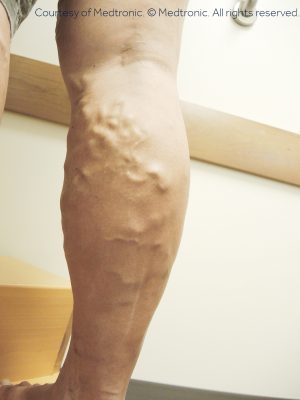Best Diet for Venous Insufficiency
Following a proper diet can help with a lot of medical conditions. But is there a specific diet for venous insufficiency that can reduce the symptoms of vein disease?
The answer is NO.
Regulating your diet is probably a good idea for general health reasons. But it can’t treat venous insufficiency, which is a serious medical condition. The only way to treat venous insufficiency is to consult your local vein specialist in NY or vein specialist in NJ.

While regulating your diet can’t treat venous insufficiency, it can lower the risk of developing this disease.
In this article, we’ll discuss vein disease, the value of a healthy diet for venous insufficiency, and effective chronic venous insufficiency treatment options.
What is Chronic Venous Insufficiency
Before we discuss dietary changes, let’s discuss what Chronic Venous Insufficiency really is and how serious it is.
Chronic Venous Insufficiency is a serious medical condition caused by the malfunctioning of the valves in the veins.
The valves act as one-way doors responsible for facilitating blood flow from the legs to the heart. When they malfunction, some of the blood leaks back down and pools in the veins below the valves. This places great pressure on the vein walls, which, in turn, leads to the formation of spider veins and varicose veins.
This entire condition is known as Chronic Venous Insufficiency.
Symptoms of Chronic Venous Insufficiency
Chronic Venous Insufficiency, if left untreated, can lead to terrible symptoms and is very dangerous.
- It can lead to the formation of spider veins and varicose veins.
- It can cause Venous Stasis Ulcers, which is the development of ulcers in the legs.
- Skin infections that cause intense itchiness, swelling, and possible bleeding.
- A constant sensation of heaviness and a throbbing dull ache in the legs. The pain and discomfort caused by venous insufficiency is worst at the end of the day when you’ve been standing or sitting for long periods of time.
- In the worst case scenario, the accumulated blood in the veins can clot. When these blood clots break, they can get carried to the lungs, which can lead to a potentially fatal medical condition called Pulmonary Embolism. As such, in the worst cases, venous insufficiency can also lead to death.
Risk Factors for Chronic Venous Insufficiency
The following situations or conditions put you at greater risk of venous insufficiency:
- Aging past 40 years
- Having a family history of vein disease
- Personal medical history of blood clots in the legs
- Having a job that requires you to be sitting or standing for long periods of time
- Pregnancy
- Obesity.
Most patients simply think the symptoms of venous insufficiency are caused by aging instead of a serious medical condition. As such, if you notice any of the symptoms of chronic venous insufficiency, you should immediately go to a Vein Treatment Clinic.
What is the Best Diet for Venous Insufficiency?
People have a tendency to offer dietary advice for pretty much any and all medical conditions.
When it comes to venous insufficiency, there is no dietary change you can make that can cure this condition. Venous Insufficiency can ONLY be cured with medical minimally-invasive treatments, which we’ll discuss later in this article.
But that doesn’t mean following a healthy diet is entirely useless.
Following a healthy diet can reduce your chance of developing venous insufficiency. Obesity is a major risk factor for vein disease. If you eat healthy non-fat food, you can reduce your weight or at least avoid obesity, which can reduce your chance of developing venous insufficiency.
As such, if you can identify yourself in one of the aforementioned risk factors for venous insufficiency, you should follow these dietary tips.
Eat Colorful Fruits and Vegetables
Eat fruits and vegetables across the color spectrum such as mangoes, oranges, eggplants, bell peppers, strawberries, blueberries, Brussel sprouts, garlic, etc. You should also eat them raw since uncooked produce is rich with vitamins and nutrients.
These dishes are generally healthy, can reduce inflammation, and improve blood flow, thereby reducing the chance of venous insufficiency.
Avoid Salty Food
If you eat salt-heavy food items like pizza and pickles, your body retains more water. This can place greater pressure on your blood vessels, restricting blood flow.
As such, avoid eating too much salty food and you can improve blood flow, reducing the chance of venous insufficiency.
High-Fiber Diet to Prevent Constipation
Constipation can put a lot of pressure on your veins, which can lead to venous insufficiency. So avoid eating an excess of food items like bananas, red meat, chocolate, and dairy products.
You should instead focus on a high-fiber diet comprising fresh fruits and vegetables, such as cabbages, apples, eggplants, etc. High-fiber foods can soften stool production and prevent constipation.
Effective Treatments for Chronic Venous Insufficiency
As mentioned already, following a healthy diet can reduce your chance of contracting vein disease. It cannot treat venous insufficiency.
The only way to treat venous insufficiency is to consult a Phlebologist, i.e., a vein specialist.
Thanks to modern medicine, there are a number of minimally-invasive medical treatments for venous insufficiency. The most effective venous insufficiency treatments are VenaSeal, Radiofrequency Ablation, and Sclerotherapy.
Here, at Vein Treatment Clinic, we work in conjunction with VIP Medical Group to give patients access to all of these advanced non-surgical treatments. All of these treatments are completely safe, carry minimal-risk, can be concluded within an hour, and you can resume your daily activities immediately.
At most, you might have to wear compression stockings to improve blood flow for a few weeks after the treatment.
Chronic Venous Insufficiency Treatment
You need to visit a highly-qualified and reputable vein specialist to determine which minimally-invasive treatment is right for you. The right vein specialist will study all your symptoms, medical history, and family history in order to create a treatment plan meant just for you.
Which of these treatments is suitable for you will be determined based on the severity of your venous insufficiency.
If you consult a phlebologist as soon as the first symptoms arise, you might just have to go for a single Sclerotherapy session, which is really cheap. But if you let the condition advance, you might have to go for some of the more expensive and intensive treatments.
So contact your vein specialist and set up an appointment as soon as possible!

